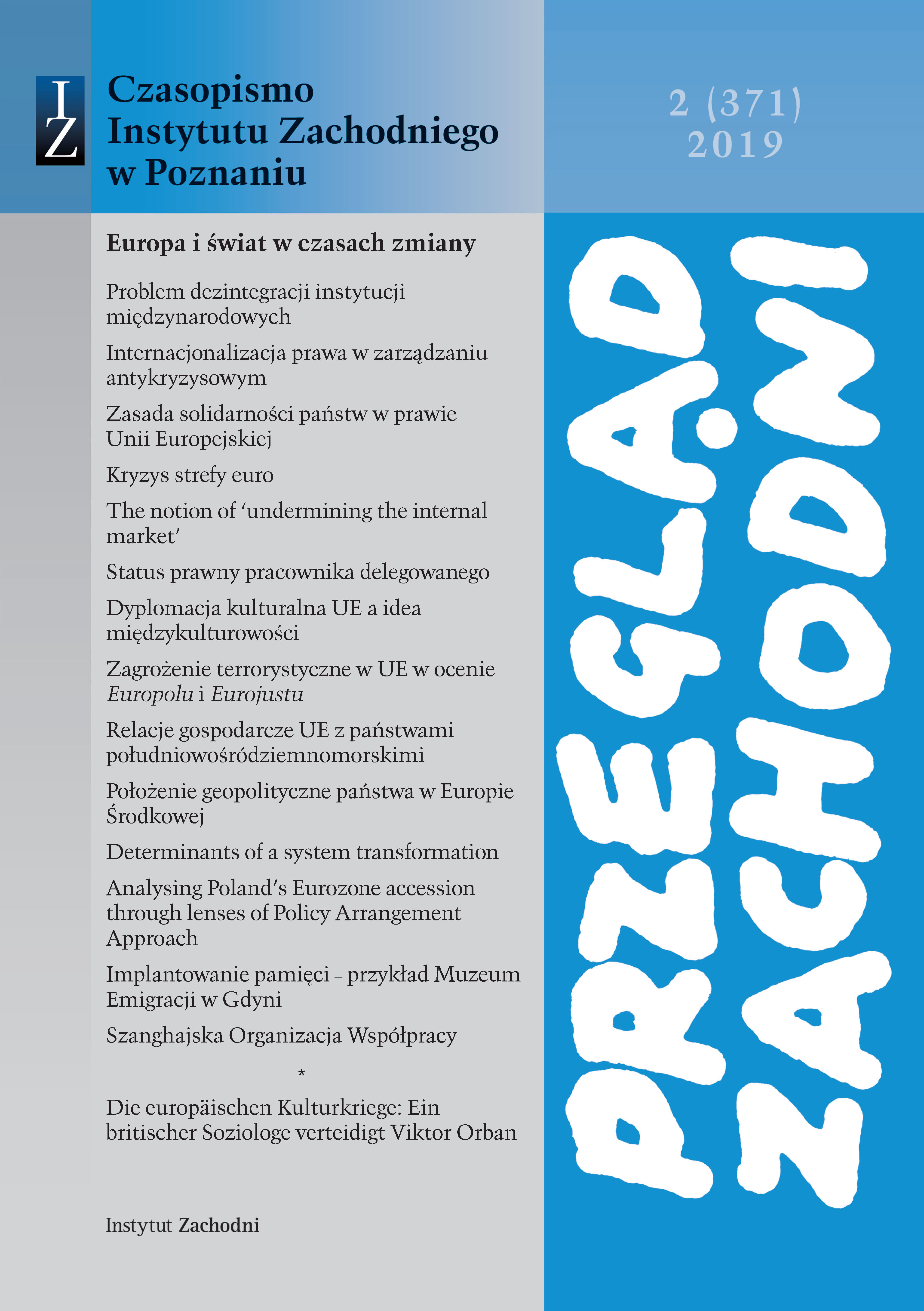Szanghajska Organizacja Współpracy w kształtowaniu procesów regionalnych i globalnych
Shanghai Cooperation Organization in shaping regional and global processes
Author(s): Gracjan CimekSubject(s): Geopolitics
Published by: Instytut Zachodni im. Zygmunta Wojciechowskiego
Keywords: Shanghai Cooperation Organization; international order multi-polar world order; Central Asia; China; Russia; United States; India
Summary/Abstract: Qualitative changes have appeared in the international system. Since 2010, the corrosion of the previous order has been accompanied by the formation of a multi-polar world. Like any qualitative change, also the present one means intense rivalry and contradictions. The essence of contemporary geopolitical rivalry can be described by applying the division into the Euroatlantic and Eurasian worlds. The center of the Euroatlantic geopolitics is currently the G-7 with the hegemonic role of the USA; while the economic center of the Eurasian space is located in East Asia, China (PRC), and militarily Russia lying in the socalled heartland; India also has an important position. International organizations are very important in this game. The aim of the article is to show the functioning of the Shanghai Cooperation Organization (SCO) in the situation that both India and Pakistan became simultaneously new members. The main research problem is: what significance does this fact have for the shape of the international order? In the article, I verify the hypothesis that SCO fits in with the aspirations of actors functioning in the Eurasian space to create a multi-polar world. In order to verify the main hypothesis, I verify the detailed hypotheses: the first recognizes that the cooperation between China and Russia in the SCO has linked the regional and global aspect from the beginning; the second assumes that the admission of new members and the aspirations of others change the function and increase the global significance of the institution. The last one accepts that the emerging tangle of new interests and contradictions between the Member States and external powers reveals the formation of a multi-polar world. In the article, I accept the perspective of the geopolitics of critical realism, in which I focus on the functioning of centers of strength, interactions between them and the effects of global, regional and local space. The considerations are conducted from the point of view of the development of the profit-in-international relations. The following research methods have been used: historical, comparative, decision-making method, system method.
Journal: Przegląd Zachodni
- Issue Year: 371/2019
- Issue No: 02
- Page Range: 229-256
- Page Count: 28
- Language: English, Polish

